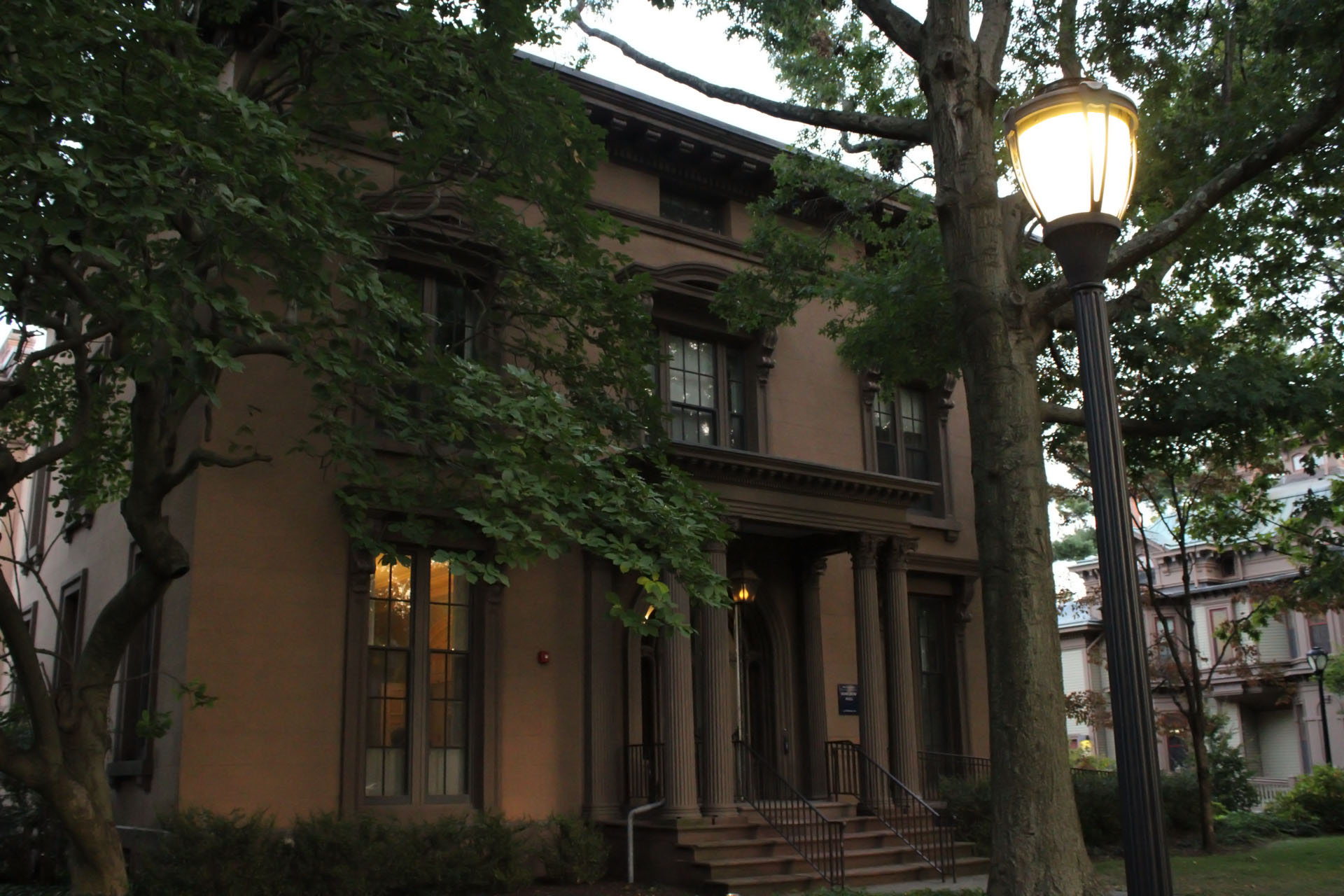
Yasmine Halmane, Contributing Photographer
On Wednesday, the Jackson Institute for Global Affairs and the Yale Law School Center for Global and Legal Challenges co-hosted a talk on global migration and movements across borders in light of the coronavirus pandemic, as part of an ongoing discussion series on COVID and global order.
The talk featured Demetrios Papademetriou — a distinguished transatlantic fellow at and president emeritus of Migration Policy Institute — and Monette Zard, the director of the Forced Migration and Health Program and associate professor of population and family health at Columbia University. The talk was moderated by Cristina Rodríguez, a law professor at YLS.
“This series grew out of an informal conversation that a number of different faculty were having over the course of this summer to try to think through the implications for the whole global order of the pandemic,” Rodríguez told the News in an interview.
These conversations, she said, emphasized the need to publicly think through both “why the world has failed” in its response to the pandemic and “what that aftermath could possibly look like.”
The COVID-19 pandemic has prompted an unprecedented slew of travel restrictions and border closures. According to Zard, the height of the outbreak saw restrictions on movement in over 190 countries with more than 3 billion affected living in countries that had shuttered their borders to foreigners.
But, as Zard said, “The sad reality is that conflict and persecution don’t stop for a pandemic.”
Globally, governments have used COVID-19 as an excuse to deny asylum seekers and refugees and further their own political ambitions, argued Zard, citing a March 20 order from the Centers for Disease Control and Prevention which bars asylum seekers at the United States’ southern border.
Zard, who had penned a letter in protest of this order, condemned “its false public health pretexts.” The World Health Organization, which has cautioned that border closures are generally counterproductive and ineffective at controlling the spread of diseases, seems to agree, Zard added.
Still, Zard worries that “political and economic motivations will trump science and humanitarian concerns.” She maintains that the principle of non-refoulement — a guarantee that no one should have to return to a country where they would face persecution — is “a cornerstone of the refugee protection regime” and must be maintained even in times of crisis.
“With more than 70 million people forcibly displaced around the world, asylum is quite simply a lifeline for many, and one that we cannot allow to slip away as another casualty of this pandemic,” Zard said.
Both Zard and Papademetriou, however, also characterize the pandemic as an opportunity.
Papademetriou believes that it has given us an “opportunity to rethink our entire system of migration.” While movements across borders have been temporarily put on hold, society has the ability to “radically rethink how people travel,” he added.
He questioned the assumption that migration is always good and urged people to go back to the drawing board. In a follow-up interview with the News, he stressed that the world needs to answer the fundamental question: “Who should get asylum and who should not?”
As Zard pointed out, even before the pandemic, the “prognosis for asylum was not a good one.”
“The biggest problem we have in the migration system is that lots of people win and lots of people lose,” Papademetriou, said, adding that, “many people are unhappy with the status quo.”
He further explained that when governments fail to pay attention to these unhappy populations, this leads to populism, nationalism and “a breakdown of the entire migration system.”
The pandemic has given the world an opportunity to reassess these systems and, according to Zard, even forced countries to acknowledge the importance of migrant workers.
Rodríguez echoed this sentiment.
“The idea that you could have illegal workers that are also essential workers points to the arguable immorality of our system where we depend on immigrant labor but don’t extend the status that that labour should come with,” Rodríguez said.
“Can we leverage this opportunity” and sustain it post-pandemic, asks Zard.
The next talk in the COVID and the Global Order series is on Oct. 29.
Vanika Mahesh | vanika.mahesh@yale.edu







